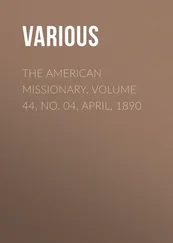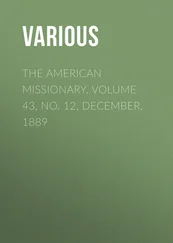Various - Homes of American Statesmen; With Anecdotical, Personal, and Descriptive Sketches
Здесь есть возможность читать онлайн «Various - Homes of American Statesmen; With Anecdotical, Personal, and Descriptive Sketches» — ознакомительный отрывок электронной книги совершенно бесплатно, а после прочтения отрывка купить полную версию. В некоторых случаях можно слушать аудио, скачать через торрент в формате fb2 и присутствует краткое содержание. Жанр: Медицина, История, foreign_edu, на английском языке. Описание произведения, (предисловие) а так же отзывы посетителей доступны на портале библиотеки ЛибКат.
- Название:Homes of American Statesmen; With Anecdotical, Personal, and Descriptive Sketches
- Автор:
- Жанр:
- Год:неизвестен
- ISBN:нет данных
- Рейтинг книги:5 / 5. Голосов: 1
-
Избранное:Добавить в избранное
- Отзывы:
-
Ваша оценка:
- 100
- 1
- 2
- 3
- 4
- 5
Homes of American Statesmen; With Anecdotical, Personal, and Descriptive Sketches: краткое содержание, описание и аннотация
Предлагаем к чтению аннотацию, описание, краткое содержание или предисловие (зависит от того, что написал сам автор книги «Homes of American Statesmen; With Anecdotical, Personal, and Descriptive Sketches»). Если вы не нашли необходимую информацию о книге — напишите в комментариях, мы постараемся отыскать её.
Homes of American Statesmen; With Anecdotical, Personal, and Descriptive Sketches — читать онлайн ознакомительный отрывок
Ниже представлен текст книги, разбитый по страницам. Система сохранения места последней прочитанной страницы, позволяет с удобством читать онлайн бесплатно книгу «Homes of American Statesmen; With Anecdotical, Personal, and Descriptive Sketches», без необходимости каждый раз заново искать на чём Вы остановились. Поставьте закладку, и сможете в любой момент перейти на страницу, на которой закончили чтение.
Интервал:
Закладка:
Yet Hancock's colleagues, and the members generally from New England, never entirely forgave the preference which had been thus early shown to him; and upon many of the sectional questions and interests which soon sprung up, and by which the Continental Congress was at times so seriously belittled and so greatly distracted, Hancock was often accused of deserting the interests of New England, and of going with the southern party. The internal and secret history of the Continental Congress or rather of the temporary and personal motives by which the conduct of its members, as to a variety of details, was influenced, remains so much in obscurity that it is not easy to ascertain the precise foundation of those charges, reiterated as they are in letters and other memoirs of those times; but on the whole, no reason appears to regard them otherwise than as the natural ebullition of disappointed partisanship against a man, who, in the struggle of contending factions and local interests, strove to hold the balance even, and who did not believe, with Samuel Adams and some others, that political wisdom was limited to New England alone.
The President of Congress, in those times, was regarded as the personal representative of that body and of the sovereignty of the Union; and in that respect filled, to a certain degree, in the eye of the nation and of the world, the place now occupied by the President of the United States, though sharing, in no degree, the vast patronage and substantial power attached to the latter office. In his capacity of personal representative of the nation the President of Congress kept open house and a well-spread table, to which members of Congress, officers of the army, attachés of the diplomatic corps foreign and domestic, distinguished strangers, every body in fact who thought themselves to be any body – a pretty large class, at least in America – expected invitations; whereby was imposed upon that officer pretty laborious social duties, in addition to his public and political ones, which were by no means trifling. All these duties of both classes, Hancock continued to discharge with great assiduity and to general satisfaction, for upwards of two years and a half, through a period at which the power and respectability of the Continental Congress was at its greatest height, before the downfall of the paper money and the total exhaustion of the credit of the nation at home and abroad had reduced the representative of the sovereignty of the nation to a pitiful dependence on the bounty of France, and upon requisitions on the States, to which very little attention was paid. Feeling all the dignity of his position, Hancock took one of the largest houses in Philadelphia, where he lived in profuse hospitality, and all upon advances made out of his own pocket. After his day, it became necessary for Congress to allow their president a certain annual stipend out of the public treasury to support the expenses of his household. In Hancock's time, this was not thought of; and it was not till near the close of the war, after the precedent had been established in the case of his successors, that he put in any claim for the reimbursement of his expenses.
There is a story, that Hancock, when chosen President of Congress, blushed and modestly hung back, and was drawn into the chair only by the exertion of some gentle force on the part of the brawny Harrison, a member from Virginia, and afterwards governor of that State. And yet, according to John Adams, Hancock was hardly warm in his seat when he aspired to a much more distinguished position. He expected to have been appointed Commander-in-Chief of the American armies, and displayed in his countenance, so Adams says in his Diary, the greatest vexation and disappointment when Washington was named for that station. It is certain that he had some military aspirations, for he wrote to Washington shortly after his assumption of command, requesting that some place in the army might be kept for him, to which Washington replied with compliments at his zeal, but with apprehension that he had no place at his disposal worthy of Colonel Hancock's acceptance. Not long after his return to Boston, his military ardor revived. He procured himself to be chosen a major-general of the Massachusetts militia, and he marched the next summer (1778) at the head of his division to join the expedition against Newport, in which the French fleet and troops just arrived under D'Estaing, a detachment from Washington's army under Sullivan, Greene, and La Fayette, and the militia from the neighboring States were to co-operate. But D'Estaing suffered himself to be drawn out to sea by the English fleet, which had appeared off Newport for that express purpose, and after a slight running engagement, the fleet, while struggling for the weather gauge, were separated by a violent storm, in which some of D'Estaing's ships were dismasted and others greatly damaged, so that he judged it necessary to put into Boston to refit. The American army meanwhile had crossed to Rhode Island, and established itself before Newport, but as Count D'Estaing could not be persuaded to return, it became necessary to abandon the island, not without a battle to cover the retreat. With this expedition, Hancock's military career seems to have terminated; but on arriving at Boston, he found ample work on hand better adapted perhaps to his talents than the business of active warfare. Sullivan, of a hot and impetuous temper, and excessively vexed at D'Estaing's conduct, was even imprudent enough to give expression to his feelings in general orders. It was like touching a spark to tinder, and the American army before New-York, which shared the general's feelings, encouraged by his example, "broke out," so Greene wrote to Washington, "in clamorous strains." The same disappointment was bitterly felt also at Boston; for the British occupation of Newport had long been an eyesore to New England, occasioning great expense in keeping up militia to watch the enemy there, and in projects for their expulsion; and the prevailing dissatisfaction at the conduct of the French admiral soon found expression in a serious riot between the populace of the town and the sailors of the French fleet, threatening to revive all those violent prejudices against the French, fostered in the colonies for near a hundred years, and which the recent alliance with France had glossed over indeed, but had not wholly subdued. Upon this occasion, Hancock exerted himself with zeal and success to prevent this ill-temper, which had broken out between the classes least accustomed to restrain their feelings or the expression of them, from spreading any higher. He opened his house to the French officers, who, delighted at the opportunity of social enjoyment and female society, kept it full from morning till night, and by his "unwearied pains," so La Fayette wrote to Washington, did much to heal the breach which Sullivan's imprudence had so dangerously aggravated. On this occasion, at least, if on no other, Hancock's love of gayety, and of social pleasures, proved very serviceable to his country.
During his absence at Philadelphia, his popularity at home had undergone no diminution, and he soon resumed, as a member of the council, on which since the breach with Gage the executive administration had devolved, a leading influence in the State administration; and when at last, after two trials, a constitution was sanctioned by the people, he was chosen by general consent the first governor under it. This was a station of vastly more consideration then than now. Under the old confederation, at least after the Continental Congress, by the exhaustion of its credit and the repudiation of its bills, had no longer money at command, the States were sovereign in fact as well as in words; while all that reverence which under the old system had attached to the royal governors, had been transferred to their first republican successors. Since that period the State governments have sunk into mere municipalities for the administration of local affairs, and all eyes being constantly turned towards Washington, the executive offices of the States, even the station of governor, are no longer regarded except as stepping-stones to something higher.
Читать дальшеИнтервал:
Закладка:
Похожие книги на «Homes of American Statesmen; With Anecdotical, Personal, and Descriptive Sketches»
Представляем Вашему вниманию похожие книги на «Homes of American Statesmen; With Anecdotical, Personal, and Descriptive Sketches» списком для выбора. Мы отобрали схожую по названию и смыслу литературу в надежде предоставить читателям больше вариантов отыскать новые, интересные, ещё непрочитанные произведения.
Обсуждение, отзывы о книге «Homes of American Statesmen; With Anecdotical, Personal, and Descriptive Sketches» и просто собственные мнения читателей. Оставьте ваши комментарии, напишите, что Вы думаете о произведении, его смысле или главных героях. Укажите что конкретно понравилось, а что нет, и почему Вы так считаете.












